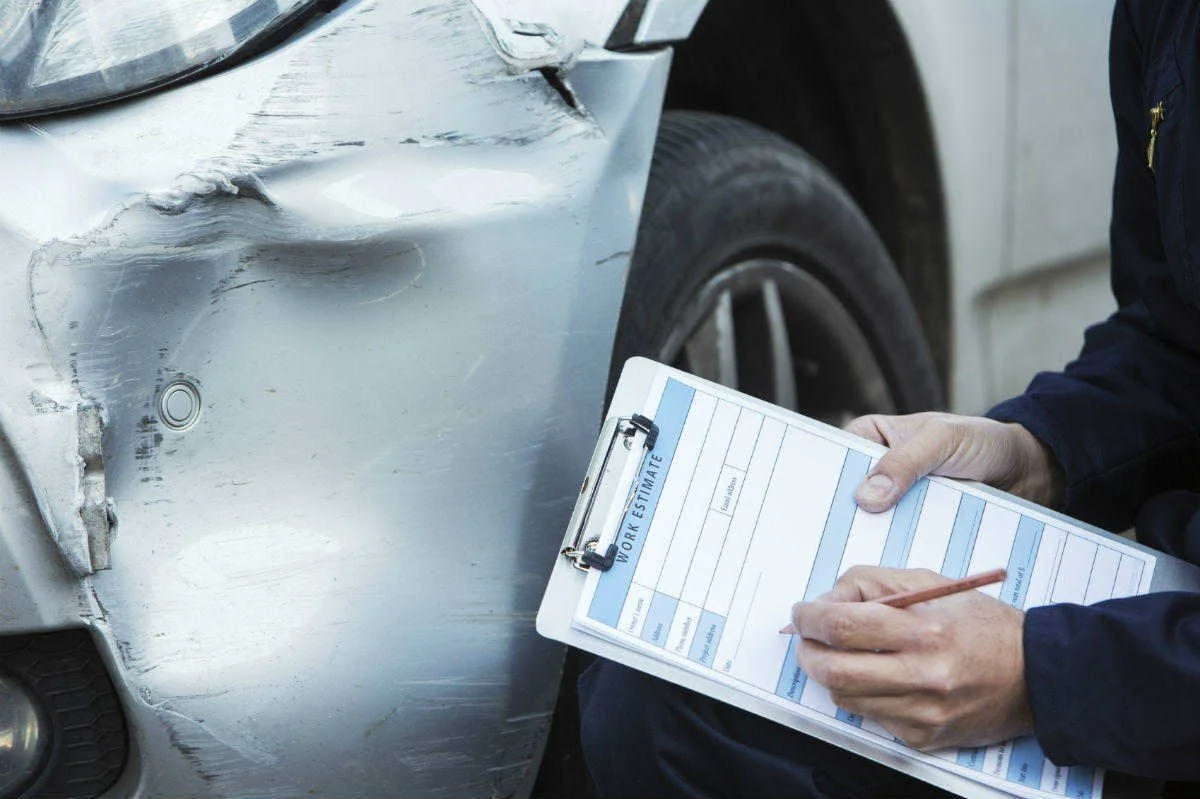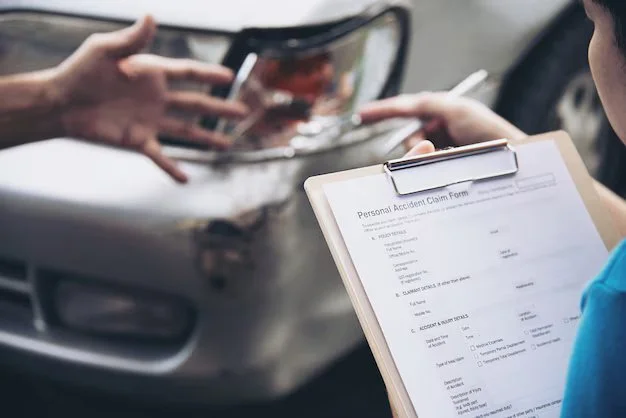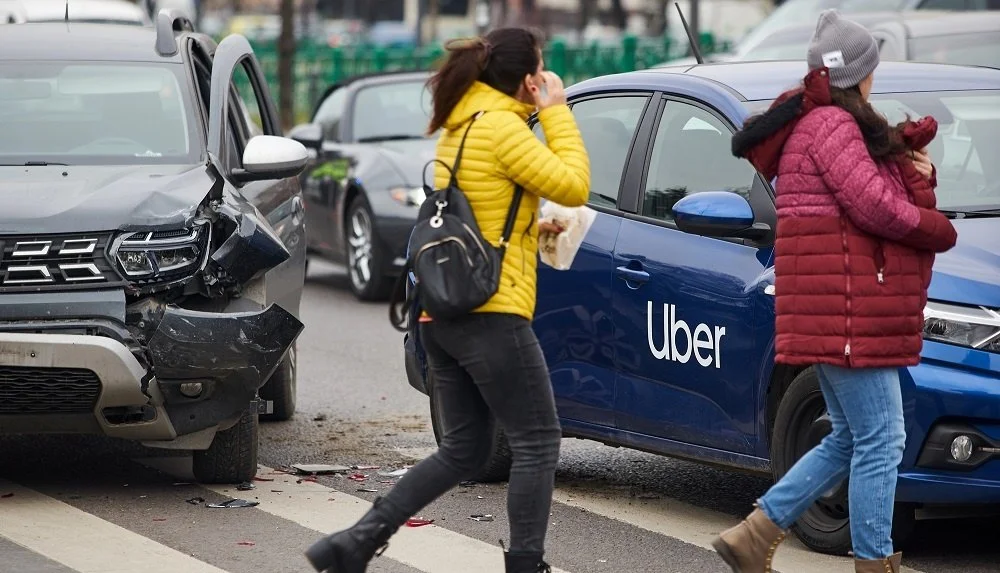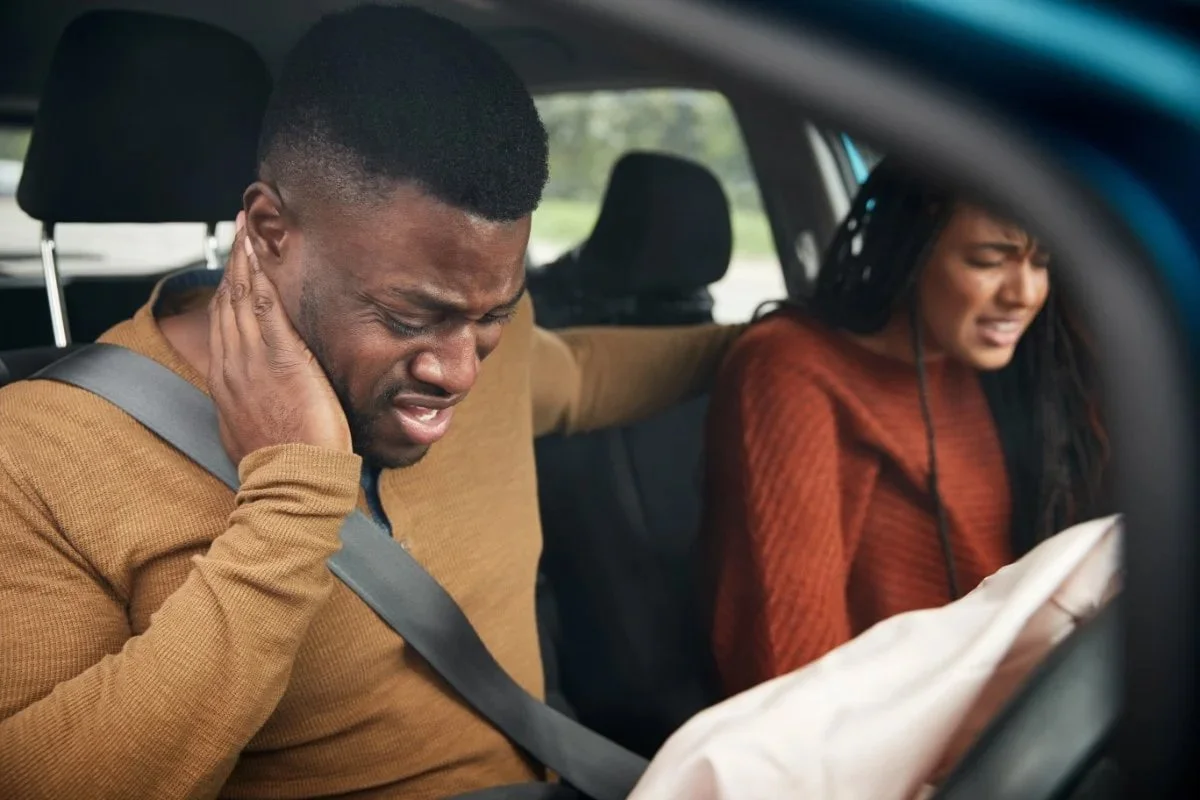Los Angeles CA Ridesharing Accident Lawyer
Experienced Legal Representation for Uber & Lyft Accident Victims
Ridesharing services like Uber and Lyft have changed how people get around Los Angeles. But with this convenience comes a growing number of accidents involving these companies’ drivers. Rideshare collisions introduce complex legal questions that differ from traditional car accident claims, including questions of liability, insurance coverage, and third-party involvement. If you’ve been injured in a rideshare crash—whether as a passenger, pedestrian, or driver—you deserve clear answers and strong representation.
At Rod Armande Law, we provide injured individuals with trusted guidance and aggressive advocacy. We understand the local courts, California personal injury laws, and the nuanced insurance structures specific to ridesharing companies. These corporations have teams of lawyers and insurers who aim to minimize payouts. Our goal is to level the playing field and help victims obtain full financial recovery.
We handle the legal burden while you focus on healing. From collecting evidence to negotiating with insurance companies and, if necessary, litigating in court, we stand by your side throughout the process. When your safety is compromised because someone else failed in their responsibility, Rod Armande Law is prepared to fight for you with skill, tenacity, and personal attention.
Common Causes of Ridesharing Accidents
Ridesharing accidents can happen for many of the same reasons as other motor vehicle collisions, but the nature of app-based driving introduces unique risk factors. Many Uber and Lyft drivers operate under pressure to complete rides quickly and efficiently to maintain high ratings and meet income goals. This pressure can lead to risky behaviors that endanger both passengers and others on the road.
Distracted driving is one of the most common causes. Rideshare drivers rely on GPS navigation apps and must frequently monitor incoming ride requests. Switching attention between screens and the road creates dangerous conditions, especially in heavy LA traffic. Other causes include:
Driver fatigue from working long shifts without rest
Speeding to meet customer expectations or reach the next fare quickly
Unfamiliarity with routes, especially for out-of-area or part-time drivers
Illegal or aggressive maneuvers, such as sudden lane changes or improper turns
Inadequate vehicle maintenance, especially in privately owned rideshare vehicles
In some cases, other motorists may be at fault, or poor road conditions may contribute. Each case requires a thorough investigation to uncover all contributing factors. At Rod Armande Law, we build strong cases by analyzing accident reports, reviewing digital ride data, interviewing witnesses, and working with accident reconstruction experts when needed.
Who Is Liable in a Rideshare Accident?
Liability in a rideshare accident isn’t always clear-cut. Unlike traditional auto accidents, where one or more drivers are typically at fault, rideshare collisions may involve multiple layers of responsibility. Liability can rest with the driver, the rideshare company, another motorist, or even a combination of parties.
The driver’s status at the time of the crash plays a major role in determining whose insurance applies:
Driver is offline: If the app was off, the driver’s personal insurance covers the accident.
App is on, but no ride accepted: Uber or Lyft provides limited liability coverage, but it’s secondary to the driver’s personal policy.
Driver accepted a ride or has a passenger: Uber or Lyft’s $1 million commercial insurance policy applies during this period.
Additionally, if another vehicle causes the accident, that driver’s insurance becomes the primary source of compensation. In some complex cases, multiple parties may share liability under California’s comparative negligence system. That means your compensation could be reduced based on your degree of fault—something insurers often try to exploit.
Rod Armande Law investigates all contributing factors to identify every potential source of compensation. We work hard to protect your rights and ensure you don’t shoulder the burden of someone else’s negligence.
Understanding Insurance Coverage in Uber & Lyft Accidents
One of the most confusing aspects of rideshare accidents is the insurance structure. Uber and Lyft offer tiered insurance coverage depending on the driver’s activity during the incident. Knowing which policy applies and how to access those benefits is essential to securing full compensation.
When the app is off: The rideshare company provides no coverage. The driver’s personal insurance must be used, which often limits payouts or excludes commercial driving.
When the app is on, waiting for a request: Uber and Lyft provide limited liability coverage—usually up to $50,000 per person and $100,000 per accident for bodily injury, and $25,000 for property damage. This is only available if the driver’s personal insurer denies or limits coverage.
When a ride is accepted or a passenger is onboard: The rideshare company’s commercial policy applies. This includes up to $1 million in liability coverage, plus uninsured/underinsured motorist coverage.
Even when coverage exists, insurers may delay or dispute claims. They often look for loopholes in policy language or attempt to minimize injuries. At Rod Armande Law, we know how these insurance companies operate. We cut through the red tape and advocate forcefully to ensure that victims receive every dollar they’re owed.
What Compensation Can You Recover?
If you’ve been injured in a ridesharing accident, your financial burdens can be overwhelming. From emergency room visits to follow-up care, recovery is expensive—and that’s before factoring in lost income or pain and suffering. California law allows rideshare accident victims to recover compensation for all losses caused by the incident.
Compensable damages may include:
Medical expenses: ER visits, hospital stays, physical therapy, medications, and future care
Lost wages: Income lost during your recovery period and diminished earning potential
Pain and suffering: Physical discomfort, emotional distress, and reduced quality of life
Property damage: Repair or replacement of your vehicle or personal belongings
Loss of consortium: Compensation for the impact on family relationships
Wrongful death damages: Funeral costs, loss of income, and emotional suffering for surviving family members
Calculating the full value of your claim requires a detailed understanding of your injuries, treatment costs, future prognosis, and non-economic harm. At Rod Armande Law, we work with medical experts, economists, and life care planners to build a strong case that reflects the total scope of your damages. We’re committed to recovering the maximum compensation available under California law.
Steps to Take After a Rideshare Accident
In the aftermath of a rideshare accident, your actions can significantly impact the success of your claim. While it’s natural to feel disoriented, following these steps can protect both your health and your legal rights:
Call emergency services immediately. Make sure police are notified and request medical assistance even for seemingly minor injuries.
Report the incident to the rideshare platform (Uber or Lyft) through their app. Include all details accurately.
Document the scene: Take photos of all vehicles, license plates, injuries, debris, traffic signs, and weather conditions.
Collect information: Get the rideshare driver’s contact info, insurance details, and rideshare company affiliation. Speak to any witnesses and get their contact information.
Seek medical treatment: Always get a thorough medical exam as soon as possible. Some injuries manifest hours or days later.
Avoid talking to insurance adjusters or signing anything without legal advice. Their goal is to minimize your claim.
Contact Rod Armande Law: Let our experienced team step in immediately to investigate and protect your claim.
Our team handles every legal detail so you can focus on recovery. The sooner you contact our firm, the stronger your case will be.
Legal Differences Between Rideshare and Regular Car Accident Claims
Unlike standard car accidents, rideshare collisions involve legal distinctions that can significantly impact your case. Uber and Lyft classify their drivers as independent contractors rather than employees. This classification allows these companies to limit their liability in many personal injury cases, especially when drivers are not actively engaged in a ride. However, they still provide commercial liability coverage depending on the driver’s status—making legal navigation more complex.
Another difference is the presence of digital evidence. Rideshare accidents can involve app activity logs, GPS data, trip timestamps, and ride history—all of which may become crucial in proving liability. Preserving this data quickly is essential.
Additionally, pursuing a claim may involve multiple insurance providers—yours, the driver’s, and Uber or Lyft’s. Each will try to avoid responsibility or shift blame. This makes it imperative to work with a law firm like Rod Armande Law that understands these complexities and can secure essential evidence early in the process.
We are experienced in dissecting multi-layered rideshare accident cases and dealing with all parties involved, ensuring you’re not left in the dark by corporations or insurance adjusters.
Injured as a Rideshare Passenger – What Are Your Rights?
If you were a passenger in an Uber or Lyft during an accident, you likely have a strong claim for compensation—regardless of who was at fault. As a paying customer, you are entitled to a duty of care. When that duty is breached, and you are injured, the law allows you to seek damages from the responsible party.
In most cases, the $1 million commercial insurance policy carried by Uber or Lyft applies when a passenger is in the vehicle. This policy is designed to cover injuries resulting from the negligence of either the rideshare driver or another driver involved in the crash.
However, insurance carriers often seek to limit payouts or delay the claim process. You may be contacted by multiple parties—adjusters from Uber/Lyft, the rideshare driver’s insurer, and even third-party insurers. Each will be looking out for their own interests.
At Rod Armande Law, we ensure that you don’t have to navigate this maze alone. We handle communication with all involved insurers, preserve vital evidence, and help you get appropriate medical care while your case is pending. If a fair settlement isn’t offered, we are prepared to litigate to get the result you deserve.
Pedestrians and Cyclists Hit by Rideshare Vehicles
Rideshare accidents don’t just affect drivers and passengers—pedestrians and bicyclists are often the most vulnerable victims in urban areas like Los Angeles. Distracted or reckless Uber and Lyft drivers frequently cause devastating injuries to people on foot or on bicycles.
These collisions often occur when drivers are:
Rushing to pick up or drop off passengers
Making illegal U-turns or sudden stops
Looking at their phone instead of the road
Blocking bike lanes or crosswalks
If you were struck by a rideshare vehicle while walking or cycling, you may be entitled to compensation from the driver’s personal insurance or the rideshare company’s policy, depending on the status of the ride.
Rod Armande Law represents injured pedestrians and cyclists with compassion and precision. We will gather video footage, police reports, app data, and witness statements to build your case. Pedestrian injuries often result in long-term physical, emotional, and financial impacts—and our firm is committed to pursuing every legal avenue to ensure you’re fully compensated.
Statute of Limitations for Rideshare Accident Claims in Los Angeles, California
Time is critical when filing a personal injury claim in California. The statute of limitations sets a strict deadline: in most rideshare accident cases, you have two years from the date of the accident to file a personal injury lawsuit. If the claim involves a wrongful death, the two-year period typically starts from the date of death. In cases involving government liability (e.g., defective roads or public transit vehicles), the deadline may be as short as six months.
Missing the statute of limitations means permanently losing your right to seek compensation, regardless of the strength of your case. Additionally, delaying action can lead to loss of crucial evidence, fading witness memories, and limited access to app or GPS data from Uber or Lyft.
Rod Armande Law urges injured victims to take immediate legal action. We move swiftly to preserve evidence, notify all responsible parties, and ensure you remain within legal deadlines. Early involvement can significantly improve your chances of securing full compensation and avoiding procedural pitfalls that might harm your case.
What to Expect During a Rideshare Injury Claim Process in Los Angeles, CA
Understanding the legal process can ease much of the anxiety that follows a ridesharing accident. After you contact Rod Armande Law, our team begins by offering a free initial consultation to evaluate your situation. We then open a detailed investigation, gathering police reports, medical records, witness statements, and app-based data (such as trip logs, driver ratings, and time stamps).
Next, we identify all potentially liable parties and their insurance carriers. We prepare a comprehensive demand letter that outlines your injuries, damages, and supporting evidence. In most cases, we attempt to resolve your claim through settlement negotiations.
If the insurer fails to offer a fair amount, we don’t hesitate to escalate. We will file a formal lawsuit and represent you in court. Throughout the process, you’ll have access to your attorney and consistent case updates. At Rod Armande Law, our goal is to reduce your stress while maximizing your compensation. Whether through a negotiated settlement or trial, we’re prepared to fight for your best outcome.
Rideshare Accidents Los Angeles, CA Involving Minors and Uninsured Victims
Ridesharing accidents involving children or uninsured individuals introduce additional legal complications. If your child was injured in an Uber or Lyft, special care must be taken to assess the long-term medical and psychological impact. California law allows parents or legal guardians to file claims on behalf of their children, and court approval may be required for settlements involving minors.
If you were injured and do not have health or auto insurance, you can still pursue a claim. Rideshare companies’ insurance policies can provide coverage regardless of your personal insurance status—particularly if you were a passenger or a pedestrian. However, getting medical treatment without insurance can delay recovery and documentation.
Rod Armande Law assists uninsured victims by helping them gain access to medical care on a lien basis—meaning treatment costs can be deferred until your case is resolved. For minors, we ensure all legal procedures are followed while protecting their future through appropriate compensation planning.
Los Angeles, CA Rideshare Driver Injury Claims: Know Your Rights
Many people don’t realize that rideshare drivers themselves can be victims of crashes—often caused by third-party drivers, poorly maintained roads, or even the negligence of Uber/Lyft riders. If you were injured while driving for a rideshare company, your path to compensation may include several options:
Personal auto insurance
Uber or Lyft’s driver coverage
A third-party driver’s policy
Uninsured/underinsured motorist coverage
Drivers are frequently told they are “independent contractors,” but that doesn’t mean they’re without rights. If you were working when the accident happened, you may qualify for Uber/Lyft’s occupational accident insurance, which can cover medical bills and lost wages up to certain limits.
At Rod Armande Law, we work with rideshare drivers who were injured on the job—navigating layered policies, pursuing at-fault parties, and ensuring drivers receive every benefit they’re entitled to under the law.
Get the Legal Help — Contact Rod Armande Law Today
If you’ve been injured in a ridesharing accident in Los Angeles, timely and experienced legal support can make all the difference. Don’t navigate complex insurance claims and legal hurdles alone. At Rod Armande Law, we’re dedicated to fighting for your full compensation and peace of mind.
Reach out now for a free, no-obligation consultation. We’ll review your case, explain your rights, and outline your options — all at no cost to you. There are no upfront fees, and we only get paid if we win your case.
Call Rod Armande Law today or fill out our online contact form. Take the first step toward justice and recovery with trusted advocates on your side.
Frequently Asked Questions (FAQs)
-
Seek medical attention first. Then call the police to report the accident. Take photos, gather driver and witness information, report the incident in the Uber/Lyft app, and contact a lawyer before speaking to insurance companies.
-
Usually not. Because rideshare drivers are classified as independent contractors, Uber and Lyft often avoid direct liability. However, their insurance policies may still cover your damages depending on the driver’s status at the time.
-
The value depends on factors like the severity of your injuries, medical expenses, lost income, pain and suffering, and long-term impacts. A personal consultation with Rod Armande Law can help estimate your specific case value.
-
Yes. As a passenger, you have the right to pursue compensation through the rideshare company’s insurance policy, regardless of who was at fault for the crash.
-
You may be eligible for compensation through the driver’s personal insurance or the rideshare company’s policy, depending on the app status at the time of the accident.
-
If the driver was not logged into the app, their personal auto insurance applies. Uber and Lyft's policies generally do not provide coverage during this “offline” period.
-
In most cases, you have two years from the date of the accident to file a personal injury claim. Don’t wait—evidence can disappear quickly.
-
Many rideshare injury cases are settled out of court. However, if a fair settlement isn’t offered, Rod Armande Law is prepared to litigate and fight for your full compensation.
-
Yes. If you were a rideshare passenger, pedestrian, or the not-at-fault party, you can still pursue a claim—even without your own insurance coverage.
-
Driving under the influence (DUI) increases the liability of the rideshare driver. Uber or Lyft may still provide coverage depending on the situation, and punitive damages may also be available.
-
You may recover compensation for medical bills, lost wages, pain and suffering, emotional distress, rehabilitation, and property damage.
-
While both companies have similar insurance structures, there may be differences in how they handle claims. Rod Armande Law is experienced with both and understands how to navigate their respective systems.
-
The at-fault driver’s insurance would be responsible, but Uber/Lyft’s policy may act as secondary coverage. We help sort out multi-party liability situations.
-
Yes, drivers may qualify for occupational accident insurance through Uber or Lyft, in addition to any applicable third-party liability claims.
-
We work on a contingency fee basis—you pay nothing upfront, and we only get paid if we win or settle your case.














